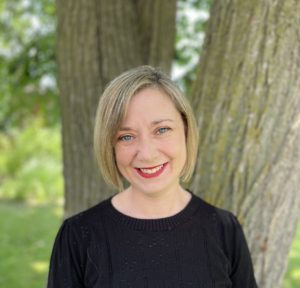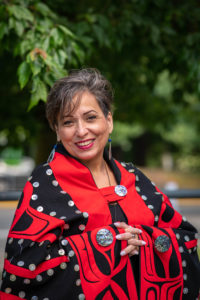Efforts to help libraries, archives, and museums replace harmful terms with appropriate language in reference to Indigenous People are gaining traction.
In Canada, the Respectful Terminologies Project recently secured seed funding to begin creating an open, online platform of preferred vocabulary to describe Indigenous people, places, heritage, traditions, knowledge, and culture. The aim is to replace culturally insensitive language rooted in colonialism with more appropriate descriptions that reflect the diverse communities.
The project of the National Indigenous Knowledge and Language Alliance (NIKLA) is co-lead by Stacy Allison-Cassin, a citizen of the Métis Nation of Ontario and assistant professor at Dalhousie University in Nova Scotia, and Camille Callison, member of the Tahltan Nation and university librarian at the University of the Fraser Valley in British Columbia.
“As a librarian and cataloger, early on, I became frustrated with the standard ways of classifying and documenting cultural materials — the inability to express, for example, items that come from oral tradition,” Allison-Cassin said. “It was this frustration that has led to work over several years on mechanisms to make descriptive practices more equitable and just, and specifically looking at Indigenous communities.”
Transforming Indigenous terminologies has been a long-time passion for Callison, who says this project is one part of an overarching initiative.
“Many people are working on this simultaneously across the country,” Callison said. “Part of our focus is to not work in silos anymore, but to create a concerted effort that is dedicated to ensuring that this moves forward into the future.”
The project will involve extensive consultation with the various Indigenous communities, which in Canada includes three main groups: First Nations, Inuit, and Métis people. The idea is to build relationships and work in collaboration to explore language that is more descriptive and appropriate.
For instance, “Indigenous peoples–North America” is preferred to the outdated and erroneous library subject heading of “Indians of North America.” Other problematic terms include “Indian mythology” or “folklore” for creation stories and references to harmful terms that objectify Indigenous women. Terms for Nations that are the result of colonial renaming or other misuse need to be replaced with terms Nations call themselves as part of a practice that supports Indigenous self-determination.
Library workers use lists of approved terms to indicate the subject or topic of the book that determine how the book can be found in a library search. Terminology often reflects racial and cultural biases of those who created the information system. Many librarians acknowledge these terms can affect accessibility and representation, as well as perpetuate trauma to groups outside of that dominant perspective.
In attempting to change these practices from the beginning, the project will also explore respectful principles in a multilingual environment. There needs to be support for community workflows and consideration of equity from the perspective of access to materials, Allison-Cassin said.
Although based in Canada, the results will be useful in the United States and elsewhere as cultural memory sectors address these issues. Recently, the Library of Congress announced a project to revise terms that refer to Indigenous Peoples.
The seed funding will allow the hiring of a strategic project lead and the ability to bring together an Indigenous advisory circle, a technical advisory group in several facilitated sessions for
planning and feedback in what is expected to be up to a six-year project.
After this initial fundraising stage, the plan is to move to platform development and then a sustainable model.
The project begins with nearly $400,000 Canadian dollars in initial support from several organizations: Library and Archives Canada (LAC), the Canadian Heritage Information Network (CHIN), the Canadian Association of Research Libraries (CARL), the Canadian Urban Library Council (CULC), the Canadian Research Knowledge Network (CKRN), the Internet Archive Canada and OCLC. As the work continues, NIKLA is seeking additional contributions and collaborations. To learn more or support the initiative, go to the project page of the NIKLA here.
“The project is centered on relationships, respect, relevance, responsibility, and a reverence for all beings,” Callison said. “We hopeto bring transformative change to descriptive practices by centering these ways of being and working — bringing substantive and lasting structural change that is also focused on future generations.”

